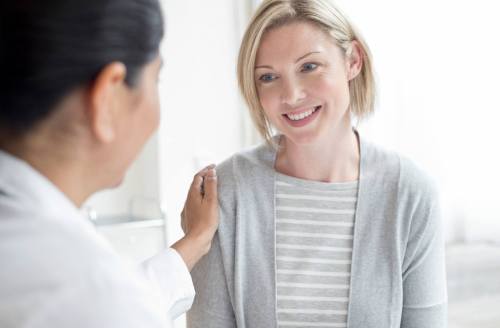On World Cancer Day, the World Health Organization (WHO) wants to make one thing very clear: Get your HPV shot.
In a statement released Monday, the International Agency for Research on Cancer (which is a branch of the WHO focused on cancer research) emphasized that the HPV vaccine is safe and effective at preventing cervical cancer—the fourth most common cancer in women.
“Unless preventive measures are implemented promptly,” the agency warns, “the burden of cervical cancer is expected to increase to almost 460,000 deaths per year by 2040, an increase of nearly 50% over the estimated number of deaths in 2018.” (There are an estimated 310,000 cervical cancer deaths worldwide every year, the statement said.)
Many people assume that only teen girls can get the HPV vaccine (since in the US at least, they were the first people to receive the vaccine); it used to only be available to people in the US under the age of 26. But in October, the Food and Drug Administration (FDA) announced it expanded the vaccine’s age range to now include those between 9 and 45—a huge preventative win in the fight against cervical cancer.
HPV is super common—and not necessarily always threatening. “It’s often referred to as the ‘common cold’ of sex,” says Fred Wyand, director of communications for the American Sexual Health Association/National Cervical Cancer Coalition. Yet it’s absolutely something you need to understand if you’re a woman who likes to get down because of its link to cervical cancer risk. Staying on top of your sexual health is an incredibly important of overall wellness. Hey, there’s no point in all that celery juice if you have no idea what’s going on downstairs, right?
With that in mind, here are all of the HPV facts you need to know.
It’s crazy common. A whopping 79 million people, or roughly one in four Americans, are currently infected with HPV, which is actually a group of several hundred related viruses, more than 40 of which are spread through sexual contact. “CDC estimates there are about 14 million new cases of HPV in the US each year,” Wyand says, adding that experts go so far as to say that most sexually active people will have at least one HPV infection in their lifetime.
Why so common? In part, it’s because it’s spread through sexual contact (think intercourse, genital-to-genital without penetration, genital-to-anal, and even oral sex), and while condoms definitely provide significant protection, they can’t necessarily cover all susceptible skin, Wyand says. Plus…
…you may have no idea you’ve got it. Men and women can live with HPV and pass it around to their partners completely unbeknownst to them, because are often no symptoms at all, and it can stick around for years after you’ve picked it up. “It’s not unheard of at all for someone to have HPV for months, or even years, before anything is detected,” Wyand says. (Which means, if you suddenly get HPV and you’ve been in a long-term, monogamous relationship, that doesn’t mean your partner has been stepping out on you. Definitely keep that fact in mind!)
This where those Pap smears you should be getting semi-regularly come in, as well as the FDA-approved HPV test. Together, they can help alert your doctor to the presence of certain types of the virus that can increase your cervical cancer risk.
Good news! It’s generally pretty benign. Just like the common cold, HPV is relatively harmless and the majority of infections clear on their own, Wyand says. But HPV can cause genital warts—as well as cancer if you’ve got one of the high-risk types. Cervical cancer’s the biggie we often hear about, but it can also lead to cancers of the vagina, anus, and throat. Again, screening can help alert your doc to any potential issues, like abnormal cell changes in the cervix.
Bad news: There’s no simple cure. “Like other viral infections, HPV is not a ‘take a shot/pop a pill and get cured’ kind of thing,” Wyand says. There’s no cure for the virus itself, but there are treatments for the problems it can cause, such as genital warts, cell changes in the cervix, and cervical cancer.
So to come back full circle, the vaccination—which has been found to provide nearly 100 percent protection against cervical infections—is really your best bet if you’re under the age of 45. Just look at Australia: As of 2013, its federal government offered a free HPV vaccine program in schools for girls and boys 12 to 13 years old. So by 2016, 78.6 percent of 15-year old girls and 72.9 percent of 15-year old boys had received the vaccination, meaning the country may well become the first to eradicate this form of cancer entirely, reports The Guardian.
Alas, if you’re beyond the age of 45, it’s too late for the shot, but now you’ve got the facts to stay on top of your screenings.
Originally published January 6, 2016; updated on February 4, 2019.
If you’re a POC, here’s why you might want to start getting breast cancer screenings sooner, and the FDA test that lets you assess your risk from home.
Sign Up for Our Daily Newsletter
Get all the latest in wellness, trends, food, fitness, beauty, and more delivered right to your inbox.
Got it, you've been added to our email list.











